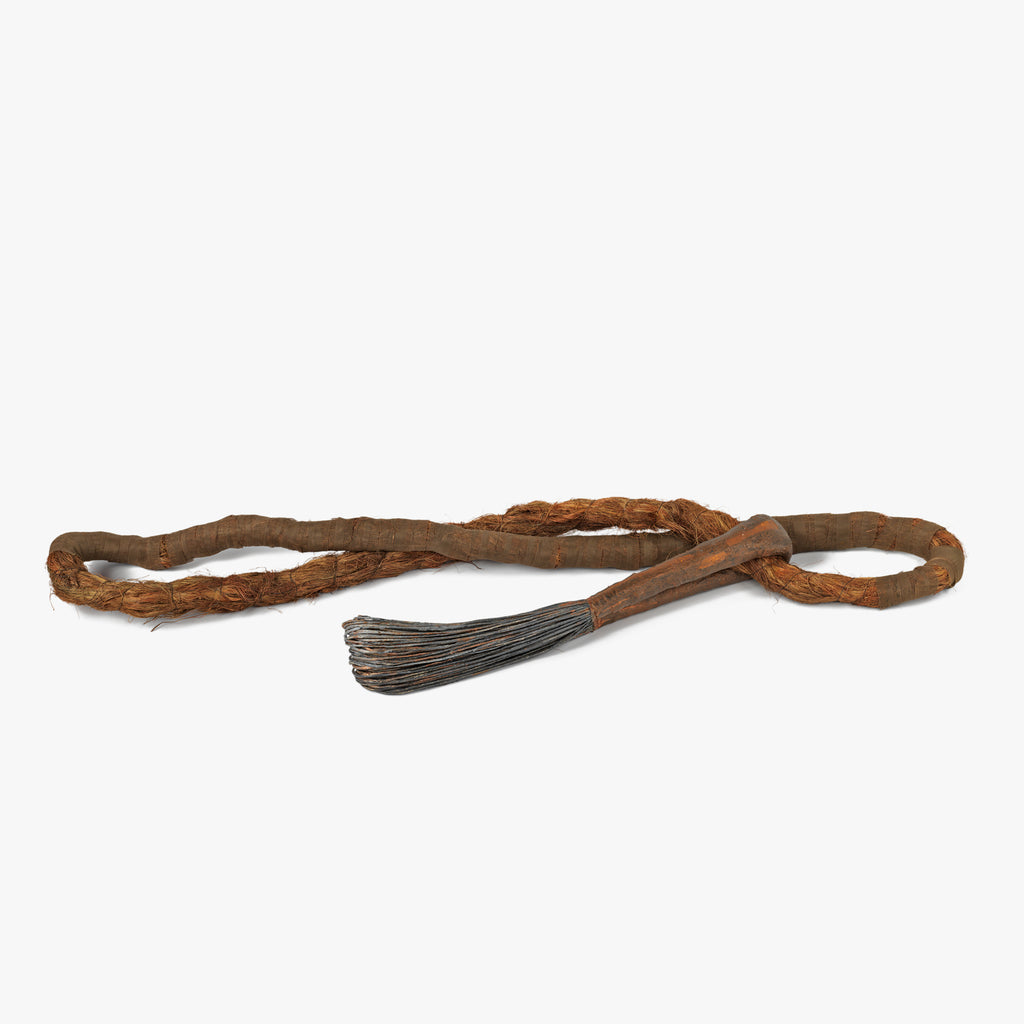
◄ Overview
Françoise Grossen
Metamorphosis I (5)
One of the greatest of all fiber artists, Françoise Grossen was initially trained as a textile designer in her native Switzerland prior to studying at UCLA, where she graduated in 1969. At this time she developed an idiom of variously dimensioned cords and ropes, tied, knotted, and braided into muscular forms. Like a handful of others at this moment – notably Magdalena Abakanowicz, Eva Hesse, and Sheila Hicks – Grossen used her accumulative techniques to create expansive large-scale sculpture. As she puts it, he was able to “break from the wall,” achieving a complete liberation from the conventional textile hanging. While it is possible to see her works as representational (of contorted bodies, braided hairstyles, or industrial rigging) they elude any simple reading, instead delivering an experience of pure, palpable physicality.
Tearsheet
Artist
Françoise Grossen
Material
Manila, plaster, fabric, paint
Contributing Gallery
Blum & Poe
Date
1986
Dimensions
6 in × 37 in × 3 in
15.24 cm × 93.98 cm × 7.62 cm
ID
Image credit: Courtesy of Blum & Poe



Metamorphosis I (5), 1986
6 in × 37 in × 3 in
Manila, plaster, fabric, paint
Blum & Poe
$0
One of the greatest of all fiber artists, Françoise Grossen was initially trained as a textile designer in her native Switzerland prior to studying at UCLA, where she graduated in 1969. At this time she developed an idiom of variously dimensioned cords and ropes, tied, knotted, and braided into muscular forms. Like a handful of others at this moment – notably Magdalena Abakanowicz, Eva Hesse, and Sheila Hicks – Grossen used her accumulative techniques to create expansive large-scale sculpture. As she puts it, he was able to “break from the wall,” achieving a complete liberation from the conventional textile hanging. While it is possible to see her works as representational (of contorted bodies, braided hairstyles, or industrial rigging) they elude any simple reading, instead delivering an experience of pure, palpable physicality.



